Introduction from Bobby Patrick, VI, Vice President of Strategic Growth and Strategy
Welcome to the first edition of At The Table: Federal! This monthly newsletter highlights the policy and advocacy work of the Medical Alley Association and provides a behind-the-scenes look at the events, issues, and decisions happening in our nation’s capital that impact our members, ecosystem, and patients around the country.
We’ve also recently expanded our federal policy and advocacy efforts by hiring The Petrizzo Group, a Washington D.C. based government affairs organization. We will be leveraging their relationships, insight, and expertise to focus on three key goals:
- Build greater awareness of Medical Alley and our community, developing relationships with Members of Congress from around the country, as well as fostering those we have with the Minnesota delegation.
- Establish connections with key regulators.
- Advocate for policies impacting our members and the patients they serve.
There will be many opportunities for our members to be involved and engage with our work at the federal level – including regular webinars, small group discussions, and meetings with policymakers. Watch your e-mails and our social media channels for more, or reach out to me, our Policy and Advocacy Manager Gabriela Spence, or any member of the Medical Alley Association team to get more information or with any interest or ideas you have.
Thank you and we look forward to advocating for this amazing community over the coming year.
Virtual D.C. Fly-In with Minnesota’s Congressional Delegation
As a fitting start to our new federal newsletter, we are excited to report on our Medical Alley Virtual D.C. Fly-in. In a non-pandemic year, we would travel to D.C. and spend two or three whirlwind days scurrying about the Capitol for meetings with our Minnesota delegation. The silver lining in this year’s virtual model was our ability to bring more of our MAA members to the table, allowing them to speak directly with their Member of Congress and share the impact their businesses are having in their congressional district – and in many cases, the world.
We’d like to give a big thank you to our members who participated in these meetings (listed alphabetically):
- Allina Health | Aetna
- Ambient Clinical Analysis
- Amplifon
- Bio-Techne
- Boston Scientific
- CentraCare Health System
- Coloplast
- GrandPad
- Lifesprk
- Mayo Clinic
- Medtronic
- QrX Partners
- Sanvello Health
- Starkey Hearing Technologies
- StemoniX
- Takeda Pharmaceuticals U.S.A
Our meetings with Rep. Angie Craig and Senators Tina Smith and Amy Klobuchar are scheduled for the coming weeks (don’t miss our next edition for meeting recaps!), but here are some key takeaways and areas of collaboration with our Minnesota Congressional Delegation:
- Rep. Hagedorn has a personal history with the Mayo Clinic and is eager to see telehealth and telemedicine expanded beyond the pandemic.
- Already a champion for addressing the inequities that have been exacerbated by the pandemic, Rep. Phillips wants to transform the healthcare model. He would like to expand care and lower costs, and he sees telemedicine as a key component to achieving that goal. Rep. Phillips enjoyed hearing about the growth of biotechnology in Minnesota and wants to see our state be the hub of that innovation.
- Rep. McCollum’s staff shared that her new position as Chair of the Appropriations’ Defense Subcommittee affords her an ability to more closely examine funding opportunities and resources to support Medical Alley’s growing research and development community, particularly in biotechnology.
- As telehealth permeates more subject areas, Rep. Omar is on the lookout for crossover opportunities to increase access and availability. Her staff shared that she is also thrilled to cosponsor the Momnibus Act, which seeks to tackle a myriad of maternal and infant health disparities.
- Rep. Emmer is a lead on the Personal Medicine Caucus, with counterparts in the Senate. One piece of legislation they are considering for this Congress is focused on improving access to and use of pharmacogenomics.
- As a member of the House Agriculture Committee, and the ranking member of the Subcommittee on Commodity Exchanges, Energy, and Credit, Rep. Fischbach will be a key voice in efforts to increase broadband access in underserved geographies.
- Rep. Stauber wants to ensure Medical Alley remains the innovation hub it is, especially through supporting further medical device research. Telehealth has made a positive impact on his constituents, and he is working to bring multiple voices to the conversations around reimbursement and expansion.
Meeting with Rep. Emmer
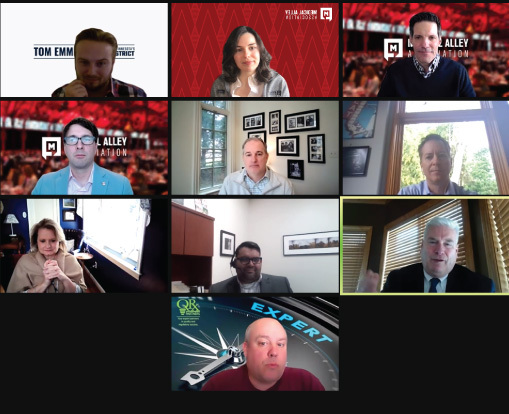
Meeting with Rep. Phillips
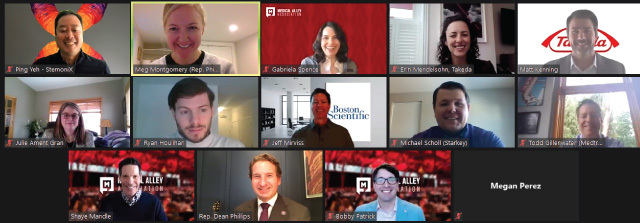
Meeting with Rep. Stauber
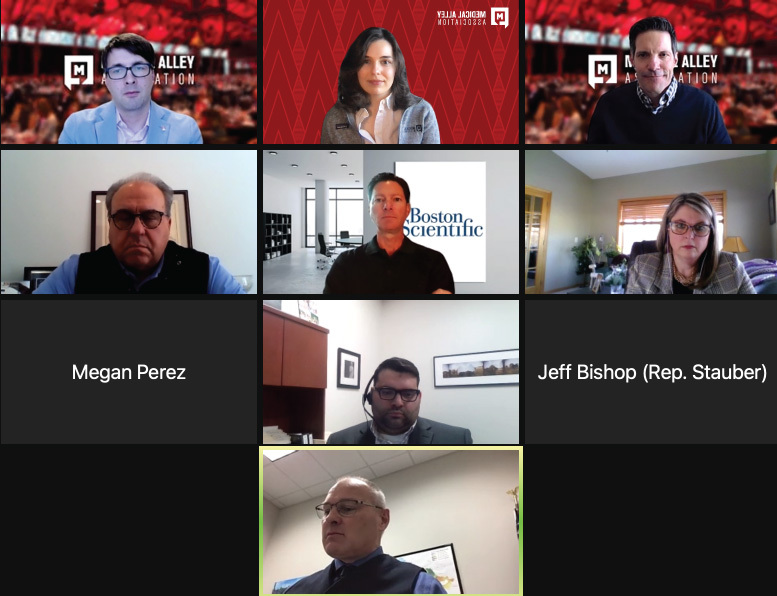
Meeting with Rep. Omar’s Staff
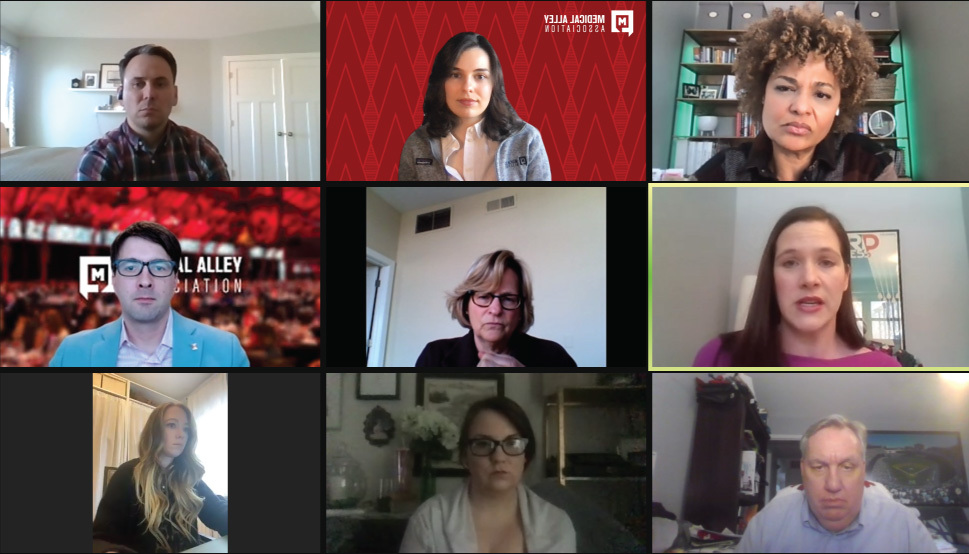
Meeting with Rep. McCollum’s Staff
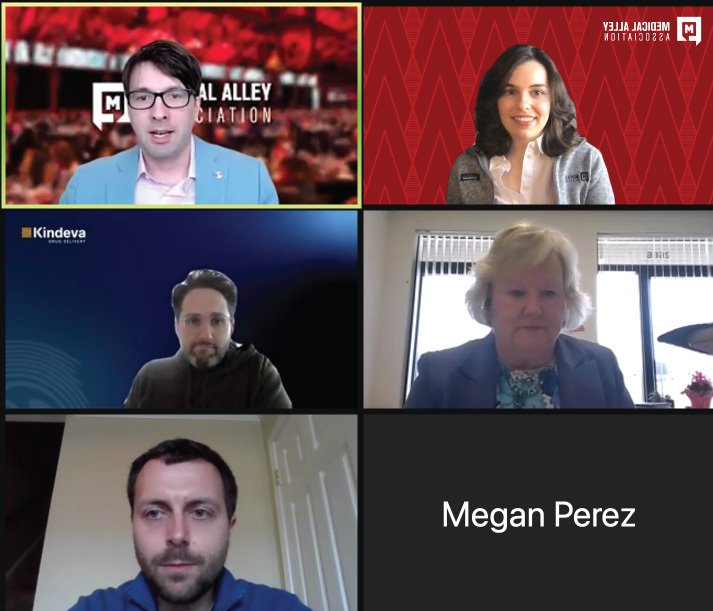
Q&A with TJ Petrizzo, Founder and President of The Petrizzo Group
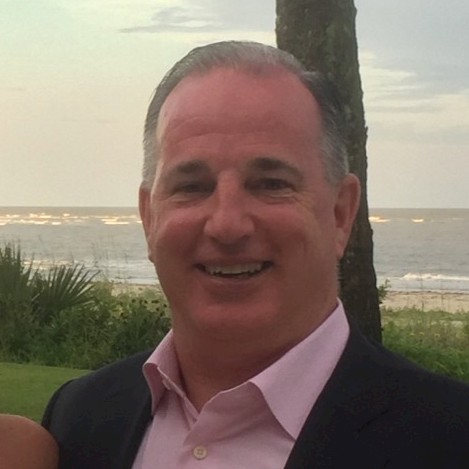
To start, tell us what it means to be a lobbyist. What does your work consist of?
The First Amendment to the U.S. Constitution affords the right of the citizens to petition its government. In its simplest form, we professionalize that petition process. Now I know lobbyists tend to get a bad rap (and some deserve it; like in any industry there are bad apples), but we maintain an important role in educating officials about their constituents’ needs, shaping policy, and making sure all legitimate voices have a seat at the table.
How have you seen Washington, D.C. change since you began your career there?
Over my tenure in Washington, D.C. I have seen a lot of changes that impact governing in our American Democracy. The rules of our profession change, the key players and influencers change, advocacy tactics change with new technologies and our changing society, and of course laws change. One aspect of advocacy that has never changed is the benefit of personal relationships and showing up. We bring that to our clients every day.
What drew you to this career?
When I was young, I always wanted to be a doctor. My brother was born with a serious heart condition and was given a 5% chance of living. I wanted to make people better. Well, fate had another path for me in the advocacy world. For over three decades, I have had the honor and personal gratification in recognizing that I get to play a small role in supporting really smart and inspirational healthcare professionals to achieve amazing discoveries never dreamed of previously – modern day miracles. And by the way, my younger brother is now 44 years old and runs his own sports memorabilia company.
What excites you about working with the Medical Alley Association and our members to expand our footprint in D.C.?
Your membership is incredibly diverse and encompasses the full spectrum of the health innovation and care industry. I am really looking forward to expanding MAA’s reach throughout Congress and the Administration. There are Members of Congress who are not aware of Medical Alley or the important role its Membership has in the healthcare ecosystem across every state in our nation. I’m excited to change that. We have many meetings, webinars, roundtables, and subject matter discussions in the works; plenty of opportunities for your members to engage, not just by bringing them to the congressional delegation or administration officials, but also bringing those officials to your membership. My team and I want to be a bridge, making D.C more accessible for your members and vice versa!
To learn more about TJ and his team, click here.
Our first 2021 D.C. Update with The Petrizzo Group is coming up soon, keep an eye out for details in the coming weeks!
MAA Federal Policy Priorities
As we expand our policy presence into the federal sphere, we have identified four guiding priorities that will continue to push Medical Alley forward as The Global Epicenter of Health Innovation and Care™.
Innovation is the cornerstone of our association’s mission and our policy work. To maintain our region’s leadership status in innovation, we must continue to foster a supportive environment for innovators. This requires a continued commitment to supporting entrepreneurs and incubators, and ensuring our community has the tools necessary to capture and retain the growth of organizations that drive our innovation economy.
The COVID-19 pandemic has vividly demonstrated the positive impact telehealth can have in providing quality care, especially for patients who face geographical and racial disparities. We will be advocating for Congress to closely examine the flexibilities and other policies enacted during the Public Health Emergency, urging swift and decisive action to ensure patients can continue to access clinically appropriate care remotely. This includes a significant investment in broadband infrastructure and other technology needed for telehealth access to help bridge the digital divide and avoid worsening existing health disparities.
Disparities in access to care and health outcomes for underserved, rural, and minority populations have long been a significant issue in healthcare but have been exacerbated by the pandemic. Our team seeks to work with Congress on examining this issue and identifying policies and partnerships that eliminate these disparities. This is an expansive issue that unfortunately cannot be tackled all at once. As a first step, we are working with MAA members to increase access to prenatal and maternal healthcare that result in improved outcomes for mothers and babies, especially women of color and women in underserved geographies.
Medical Alley is home to world-leading care providers, payers, and health technology organizations that are a driving force in the move to value-based care. We are looking to support policies that will further empower those healthcare organizations to collaborate on the creation of value-based arrangements that will increase access and improve patient outcomes while simultaneously lowering the overall cost of care.
